My heartfelt thanks go to the hundreds of people who have allowed me to share their healing journeys. To the members of the Cancer Conquerors Foundation, thank-you for inspiring me with your stories of living the well life. I felt a closeness to each of you as I wrote.
Thanks, too, to the residents of Country Meadows Assisted Living Communities. Youve taught me about truly living. Whenever I have cited a story of yours, its a composite drawn from the real stories but with no resemblance to any one persons experience. In all cases I hope the dignity, integrity, and courage of each person has been preserved.
My gratitude to my family my wife, Linda, and our daughter, Erica for allowing me to share some of our experiences. And thank-you for your support and patience when Id lock myself in the study, writing, between trips away from home.
George and Mary Jane Leader, I am so deeply grateful to each of you. Your belief in and constant support of my work is a precious gift. I cant express how much you mean to me and how our shared experience has given joy to my life.
To my friends at Harper San Francisco: Tom Grady, you grasped the vision of this project immediately; Caroline Pincus, your editorial touch is exceptional; Robin Seaman, your enthusiasm is contagious; and Clayton Carlson, youve never been afraid of a new idea. Thank-you all.
To God, for life, after it looked like mine on this planet was about to end, my deepest loving gratitude. Thank-you for giving me the opportunity to serve.
The ideas, procedures, and suggestions
contained in this book are not intended as a
substitute for medical advice .
Wellness is one of the greatest and most powerful words in the English language. Unfortunately, it is also one of the least understood. But start putting this word into your vocabulary and the concepts it entails into your life. Wellness is one of the most important ideas of our time.
After two years of fruitless debate between the U.S. Congress and the president, support for government health care reform has dissipated. A Gallup Organization poll explained the results of the debate: fewer people now consider governmental action desirable as a solution to our health care problems. In contrast, Americans believe individuals must take greater responsibility for controlling their own health care costs.
Indeed, 85 percent of the Gallup Poll respondents believe their physical well-being depends on how well they care for themselves. That is the heart of wellness, I believe it is our countrys only real and lasting means of true health care reform. This approach to health care, and to life, is really the only viable option. It is based on the truth that we as individuals make the single most powerful contribution to our health and well-being. Not the doctor. Not prescription medications. We do. Herein lies power!
Wellness is the complete integration of body, mind, and spirit the realization that everything we do, think, feel, and believe has an effect on our state of well-being.
Wellness is a choice, a decision we make to move toward optimal health and maximum life.
Wellness is a process an awareness that there is no end point but that health and happiness are always possible in the present moment, here and now.
Wellness is not a medical fix but a way of living a lifestyle sensitive and responsive to all the dimensions of body, mind, and spirit; an approach to life we each design to achieve our highest potential for well-being now and forever.
Medicine deals with one dimension, the body. Old self-help ideas dealt with one dimension, typically the mind. Wellness involves an all-inclusive paradigm shift. Its practice encompasses six major life areas the physical, emotional, social, intellectual, vocational, and spiritual spheres. Wellness is not a piecemeal approach; it involves the total you!
Traditional medicine finds a problem a symptom and treats it. The goal is to neutralize symptoms, to return to a point of no discernible illness. This is the disease model of medicine. Preventive medicine, trumpeted by an increasing number in the medical community, is also based on the disease model. The goal is the same: no discernible illness.
Wellness strives for a new standard. No matter what our state of health, wellness calls for continuing improvement and self-renewal in all areas of life. Wellness seeks more than the absence of illness; it searches for new levels of excellence. Beyond any disease-free neutral point, wellness dedicates its efforts to our total well-being in body, mind, and spirit.
The 22 Non-Negotiable Laws of Wellness distills more than a decade of experience in the field of health enhancement and life enrichment into a set of basic laws that govern success and failure in the pursuit of total wellness. This book describes the fundamental rules of the wellness pursuit.
But who says so? How can one guy without an M.D. or Ph.D. behind his name discover what thousands of others have overlooked? After all, there are many sophisticated wellness practitioners and academics. Why do I think I can lay down the laws?

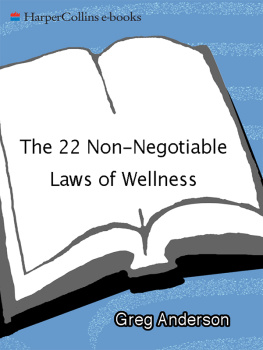
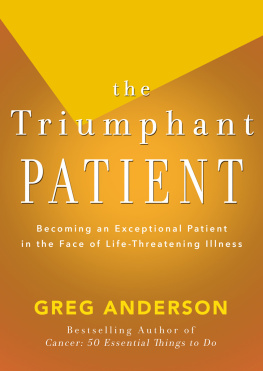
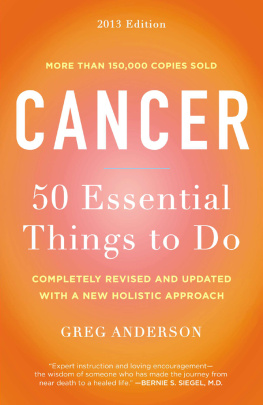

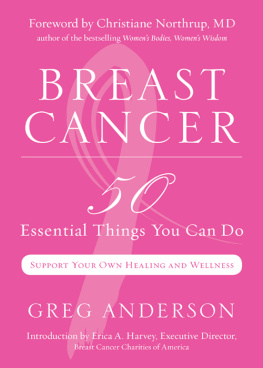
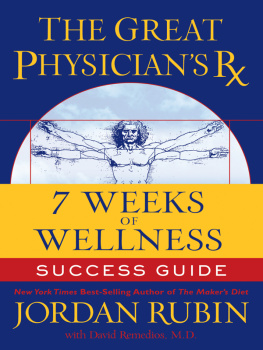


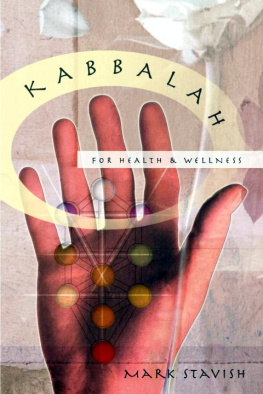
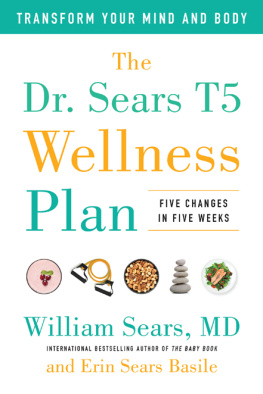
 RRD(H) 10 9 8 7 6 5 4 3 2 1
RRD(H) 10 9 8 7 6 5 4 3 2 1